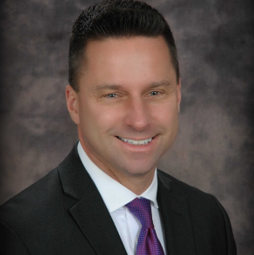This FREE 3-part educational series was made possible thanks to funding from The U.S. Department of Health and Human Services, Administration for Strategic Preparedness and Response (ASPR) and Texas Hospital Association Foundation.
Oct. 25, 2023 Click HERE for the recording (opens in YouTube)
SESSION 1: Improving Pandemic Preparedness: Lessons learned from COVID-19 to reduce the Risk and Anxiety of our community.
This webinar presents practical lessons learned for pandemic preparedness and response in healthcare. This is a unique opportunity to combine real life examples in healthcare along with joint commission lessons and guidelines to address COVID-19 and other pandemics. This webinar will train participants to analyze and explain challenges of pandemic preparedness and response through a practical, interdisciplinary, and equity-driven approach. Participants will be able to share and discuss preliminary lessons on effective design and implementation of COVID-19 interventions.
Nov. 1, 2023 Click HERE for the recording (opens in YouTube)
SESSION 2: Emergency Preparedness and Response: Networking and community relations in emergency response
When natural disasters occur, they underscore the problems and shortcomings associated with coordinating outside logistics and show a clear need for local volunteers to be ready to act as the first line of response to such catastrophes. Government officials often have to call on local citizens to volunteer their time, money, and sweat equity to address these massive natural disasters. This webinar will use actual police, fire, and healthcare emergency management examples to explain the community focused preparedness. Participants will give practical tips and examples on how to successfully develop relationships prior to a critical incident.
Nov. 15, 2023 Click HERE for the recording (opens in YouTube)
SESSION 3: Emergency Preparedness and Response: Emergency Planning Program Evaluation and Response
After an emergency or disaster, it is important to evaluate the response. Doing so will support continued recovery and build resilience. A post-emergency evaluation should focus on assessing the relevance and success of response activities. This webinar will focus on how to Identify improvements for future emergencies in order to support and strengthen capacity for future preparedness and response; Monitor, evaluate, and learn from actual events, both positive and negative; Collect information to communicate to others and identify strategies that can be shared with other communities and healthcare systems.
Faculty: Brian Uridge, MPA, CPP, CHPA, CTM, Deputy Director DPSS and Michigan Medicine Security Director
Brian Uridge, MPA, CPP, CHPA, CTM is currently the Michigan Medicine Security Director at the University of Michigan Health System. He manages over 200 security personnel throughout the health system which has over 28,000 employees and over 1,000 licensed beds. He was also the Director of Security Services for Spectrum Health Delivery System in Grand Rapids, Michigan, for the past three years. At Spectrum, Director Uridge led more than 120 safety, security, and security police officers, providing security for approximately 27,000 employees system-wide at over 120 locations.
 |
